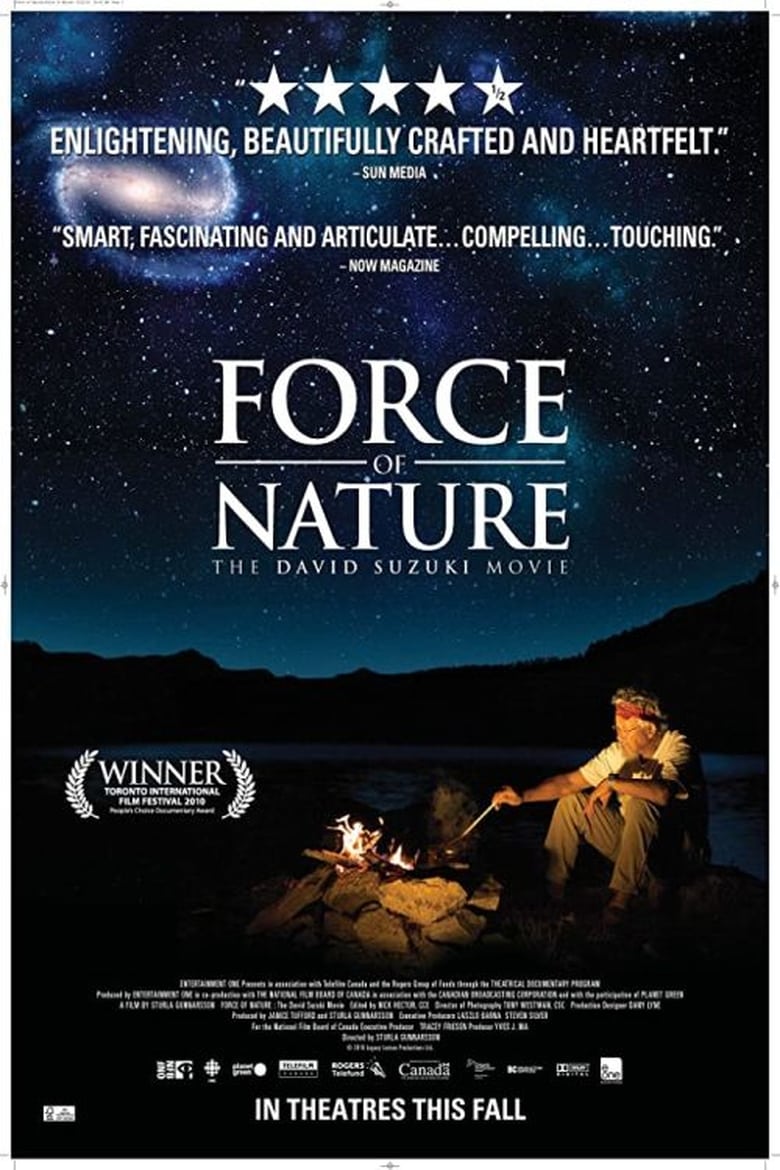
Plot
Approaching age 75, scientist Dr. David Suzuki, seen by many as the leading environmentalist in Canada, is giving a lecture in Vancouver. As he stands behind the lectern, he tells many reasons why he and we should care about the environment. With the human population growing exponentially and humans having increasingly longer life expectancies, we as a species are having a larger footprint on the environment. Much of what is man made in the world, such as the economy, democracy and the dependence on fossil fuels, are treated as unchangeable forces of nature, when in reality they can and should be viewed critically, especially in their long term consequences on life on the planet. He also tells of the interconnectedness we are as a species without most really realizing it, and that we should have a stronger connection to place and what that means. Away from the lecture stage, he tells of the profound effect the bombing on Pearl Harbor had on his life as a third generation Canadian of Japanese heritage, and the resulting negative view of white Canada on ethnic Japanese for the better part of his growing up period. Beyond the internment of Japanese-Canadians in camps during WWII, this situation was especially problematic when he was a typically horny teenager in almost exclusively white Leamington, Ontario where he could not approach white girls for dates. He spent the best part of his scientific days at the Y-12 National Security Complex in Tennessee before moving back to his hometown of Vancouver and a job at the University of British Columbia. He does not consider himself to be the greatest of scientific minds, but sees himself as being a good communicator of science to the public, as seen through his long running television show The Nature of Things (1960). His interest in the environment took a stronghold in the 1980s when he was made aware of the fight against logging in Haida Gwai. This connection is now all the more important as his daughter Severn Cullis-Suzuki has since married into the culture.
Written by
N/A
Directed by
Sturla Gunnarsson
Crew
Production Countries
Canada
Languages
English
Awards
5 wins & 4 nominations